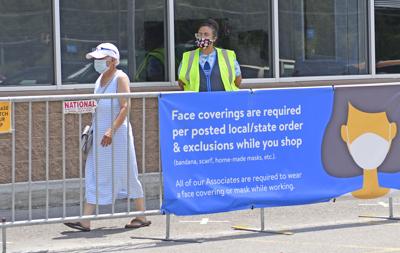Sermon Questions on forgiveness (Part 1)
This past Sunday I preached the seventh message in this series, “God, I Have A Question.” I addressed the topic “Does it really matter to God how we treat each other?” Most of the questions submitted through our website were related to the topic of forgiveness. My message Sunday focused on why and how to forgive others. During the message, additional questions were submitted by text. While I answered some of the questions at the end of my message, I would like to respond to some additional questions now.
Jesus said to forgive 70×7 , does he mean to forgive 490 times?
I believe Jesus was using a figure of speech indicating our forgiveness should be complete and unlimited. I do not think He is saying to keep a record and once we hit 491 times, we are free to hold a grudge. The rest of scripture gives a picture of God’s unlimited and unmerited grace along with the admonition to forgive and release those who offend us. It might be like us saying “I’d ride the Batman ride at Six Flags a thousand times.” It’s not that when we get to 1001 we would stop. We would just be saying we would do it as many times as possible.
Should Satan be forgiven?
The only approach I can take toward this question is a biblical one. Nowhere in the Bible are we told to forgive Satan. We are told to be alert in regard to his deception and destruction (1 Peter 5:8), to fight against him (Eph 6:12), and to resist him (James 4:7). We are never told to forgive him. Satan is not a human and is not a part of God’s redemption plan. Also consider that God sees the end at the same time He sees the beginning. He knows Satan will continue to be the enemy and will not repent. I do not believe our relationship with Satan is anything like our relationship with other human beings (whom we should forgive). Since the Bible doesn’t tell us to forgive Satan, I’m going to answer this question wit h “no.”
Should truly all be forgiven, even the ones who commit terrors, hate, and evil?
Yes. I believe the Bible teaches that we are to forgive everyone. Romans 12:17-21 says that vengeance belongs to God, not us. Matthew 5:44 says that we are supposed to love our enemies, and Luke 6:27 goes a little further by saying we are supposed to do good to those who hate us. Also remember that while the one who has committed the offense can benefit from our forgiveness, the one offended benefits the most when we forgive those who have sinned against us. This is a very difficult thing to do, and really requires the supernatural grace of God in us. I believe there are some people in my life I can forgive only as I surrender my will totally to Jesus Christ, and I allow Him to forgive through me.
What if the person being forgiven doesn’t believe that wrong was ever done?
The Bible teaches that we are supposed to go to a person who has offended us and tell them about the offense. There are many times we are offended when the other person has no clue anything wrong has been done. Hopefully this kind of confrontation can end in repentance and forgiveness. In the event the other person does not repent and does not even admit that wrong has been done, we still must forgive in our hearts. The reason is because unforgiveness leads to bitterness and bitterness will destroy you. One reason God commands you to forgive others is so you will live in peace and joy.
How can I be forgiving without getting taken advantage of?
I really like this C. S. Lewis quote from The Four Loves: “To love at all is to be vulnerable. Love anything and your heart will be wrung and possibly broken. If you want to make sure of keeping it intact you must give it to no one, not even an animal. Wrap it carefully round with hobbies and little luxuries; avoid all entanglements. Lock it up safe in the casket or coffin of your selfishness. But in that casket, safe, dark, motionless, airless, it will change. It will not be broken; it will become unbreakable, impenetrable, irredeemable. To love is to be vulnerable.” I think his point is that no matter what we do, someone is going to take advantage of us. The choice we have to make is to either be cold, hard, and unbreakable or to be soft, warm, pliable, sometimes hurt/broken. The second option is the one where we find joy and peace. We find meaningful relationships and opportunities to share Christ’s love and grace with others. With that said, I do not believe God wants us to be gullible. Forgiveness does not mean stupid. From every circumstance of our lives, we can learn and grow. Whenever we are hurt by others, we can learn and grow from it. We learn to pick up on signs that more pain is coming our way, and we may be able to stop it. It is possible we can even help our friend or loved one stop before he or she inflicts the pain. I do believe we should always ask God for wisdom in regard to all the circumstances of our lives so we will know how to act and respond. Will we sometimes get taken advantage of? Probably. Should we forgive anyway? Yes.
What is the responsibility of the one being forgiven? Where does restitution come in to play and how important is it? Should we expect it?
The offender should take ownership of what he or she has done. Our tendency is to try to excuse ourselves or justify our actions. An important step to personal wholeness is taking ownership of our actions. So, first the offender should take ownership of what they did and ask for forgiveness. This will open the door for the process of restoration to begin. Note that I said it is a process. Restoration may take some time. A part of restoration may very well be restitution. If it is possible for something to be returned to the one offended, then certainly that should happen. When I was a teenager, I took my brother’s car without his permission. My friend and I had a wreck. My brother forgave me for doing this, but I still worked for months and paid him for his car. If someone really repents, then restitution should happen. Yes, we should expect it. With that said, whether restitution ever comes, we should still forgive. Remember (though I’ve said it a number of times), we are the beneficiaries of forgiveness.
You May Also Like

15 Days of Faith – Day 15
March 31, 2020
The Foundation
November 24, 2020